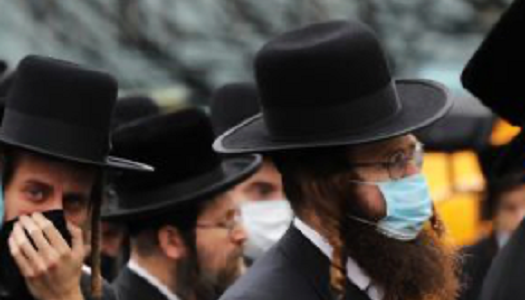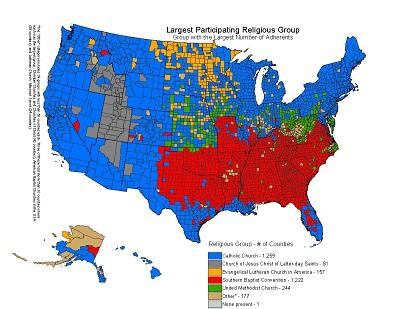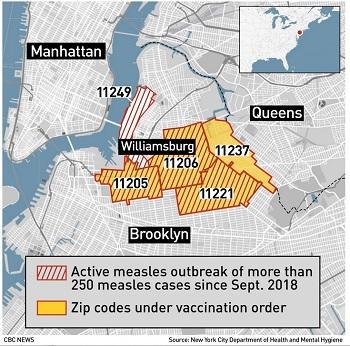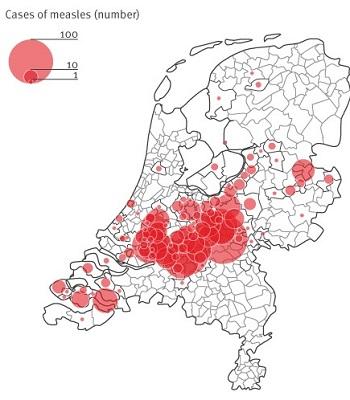Communicating to science-resistant religious communities

How can science-related communicators speak to science-resistant religious communities?
Look at the map of where in April 2020, people in the USA had not stopped travelling at the same time that there have been widespread warnings about COVID-19. Those maps look very much like the maps where people don’t believe the scientific consensus that humans are causing climate change and also look like maps that show high density of members of the Southern Baptist Convention (red).

Or look at the 2018 map of New York City neighbourhoods with mandatory vaccination orders imposed on them during a measles outbreak: those neighbourhoods centered around Williamsburg, home to a very high density of ultra-Orthodox Jews. COVID-19 has hit hard there as well: “Coronavirus: ‘Huge Spike’ in Brooklyn Hasidic Community” is a headline in the New York Times on 2 April.

A measles outbreak in the Netherlands in 2013 was associated with low child vaccination rates in the Dutch “Bible Belt” having a large population of “Orthodox Protestants”: 92% of the cases were associated with this religious group. A similar religious community in the eastern Fraser Valley of British Columbia also had measles outbreaks.

All three religious communities tend to deny or be resistant to scientific understandings, perhaps because they have no need for or acceptance of science as authoritative and scientists as authorities; they already have all the authorities they need be they pastors, imams or rabbis.
The issue of resistance to science and science denial within orthodox or fundamentalist religious communities should be one of serious concern. Global crises such as biodiversity loss, climate change, ocean acidification, infectious diseases such as the COVID-19 pandemic all have, and have the potential, to seriously disrupt life for humans and the biosphere. Dealing with these crises will take intelligent governments elected by citizenry who understand the nature of the problems and the seriousness of the risks, and the implications of the outcomes. Citizens also have to have confidence in authorities to make decisions grounded in evidence-based understandings of reality.
There is a very basic tension between a way of knowing based on a scientific orientation and one based on religious orthodoxy.
I hope to begin a project that intends to develop a set of approaches for attempting to introduce the importance of science understandings to science-resistant religious communities.